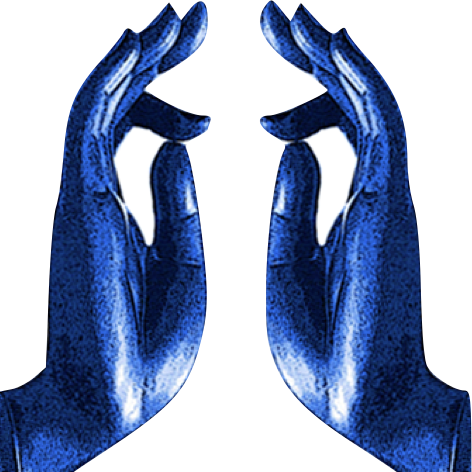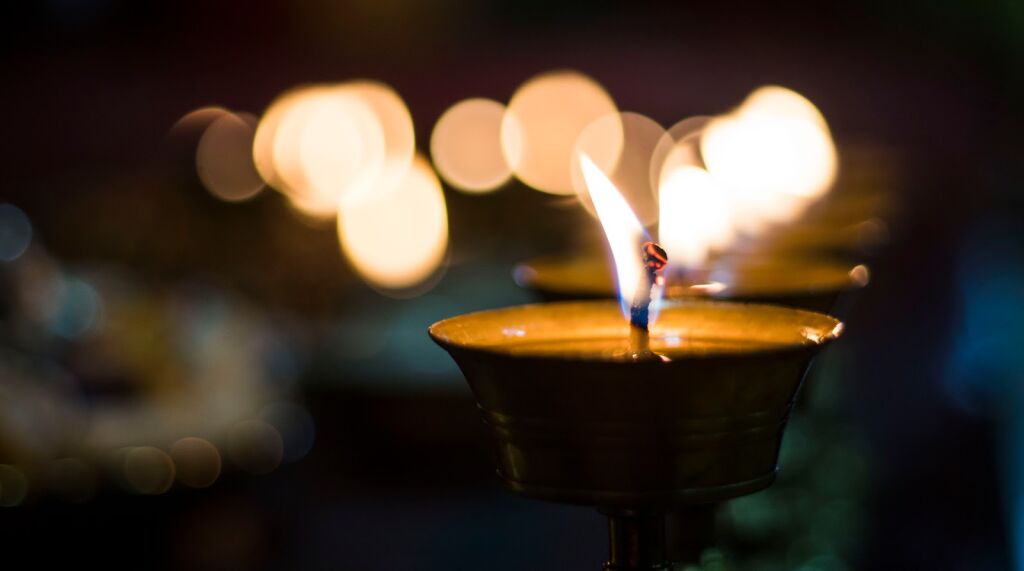In the last newsletter (‘If you are aware‘ below) I wrote about meeting the Venerable Thich Nhat Hanh. I did this because I tried to suggest to you that it is in meeting practitioners of Dhamma that we gain most rather than reading books or listening to recordings or even attending ceremonies. When we are face to face with another human being who has practised Dhamma and has come to embody it then we have a chance to look into the mirror of the Dhamma.
What, O Ananda, is the Mirror of the Dharma?’ Herein a noble disciple has absolute confidence in the Buddha, Dharma and Sangha. Because of his confidence, he spends much time to reflect or think about the great qualities of the Triple Gem. These reflections will help him or her develop the great qualities within himself and the power to concentrate the heart/mind. And he/she possesses virtues that are dear to the Noble Ones, complete and perfect, spotless and pure, which are liberating, praised by the wise, uninfluenced (by worldly concerns), and favourable to concentration of heart/mind.
From Maha-Parinibbana Sutta DN 16
When we are with others, we have the opportunity to encounter either good, ill or indifference in the other person and within our own hearts and minds. Being with a genuine human being who embodies the Dhamma can evoke in us the inspiration, determination and courage to make a real effort ourselves to cultivate Dhamma qualities and move toward real freedom of heart and mind.
Allow me to illustrate this with another example of a very powerful meeting. In 1997 Molly and KK Lim were living in China and very kindly and generously invited me to visit them. They took me to Pu Tuo Shan an island sacred to the Bodhisattva Kuan Shi Yin among other special places. They also sent me on an exciting overnight train journey to Wu Tai Shan the sacred group of five mountains in Shanxi province which pilgrims have for centuries regarded as special to Manjusri Bodhisattva, the Bodhisattva of Wisdom. This is an extraordinarily beautiful place in which a sacred valley is enclosed by the mountain peaks. One of these mountains, the northern peak is the highest mountain in China. I could tell you many wonderful things about the beauty, art and nature to be found there however the most memorable thing which has never left my mind is a meeting with the elderly abbot of the main monastery/temple in Tai Huai the small town in the middle of the valley. Wandering around the monastery I noticed that there were monks of all traditions living there. Tibetan monks, Theravada, Mahayana, Ch’an could all be seen in small numbers dwelling in that one temple complex. Great good fortune meant that I met a young Chinese novice who spoke English as my Chinese consisted of no more than a written list of meals items kindly provided by Molly and KK. The novice told me how that in this monastery the abbot encouraged all traditions of Buddhism to practise together, learn from each other and encourage each other.
In a country where Buddhist practise had been suppressed for so long this was astonishing to me. I had visited China in 1977 when all monasteries and temples were closed and I’d been told that the monks and nuns had “retired”, “changed their jobs” or “passed away”. In 1997 this monastery in Tai Huai was blooming in an astonishing way thanks to the wisdom and encouragement of the Abbot. His name was translated for me as “Nibbana Here and over There”.
The novice asked if I would like to meet the Abbot and naturally, I replied yes with great enthusiasm. He directed me toward a room with dirty, dusty windows and as I peered in, I saw a small very old man seated at a long table surrounded by men in suits. The novice told me that this was a meeting of the local Communist Party officials who were discussing with the abbot how many monks they would allow him to ordain that year. The novice said you must meet him and with a quick movement pushed open a door and thrust me into the room much to the astonishment of the officials seated at the long table. I was about to meet a most extraordinary human being. However, that will have to wait until next time we meet in the newsletter.
With much metta and every blessing, Bhante Teja

